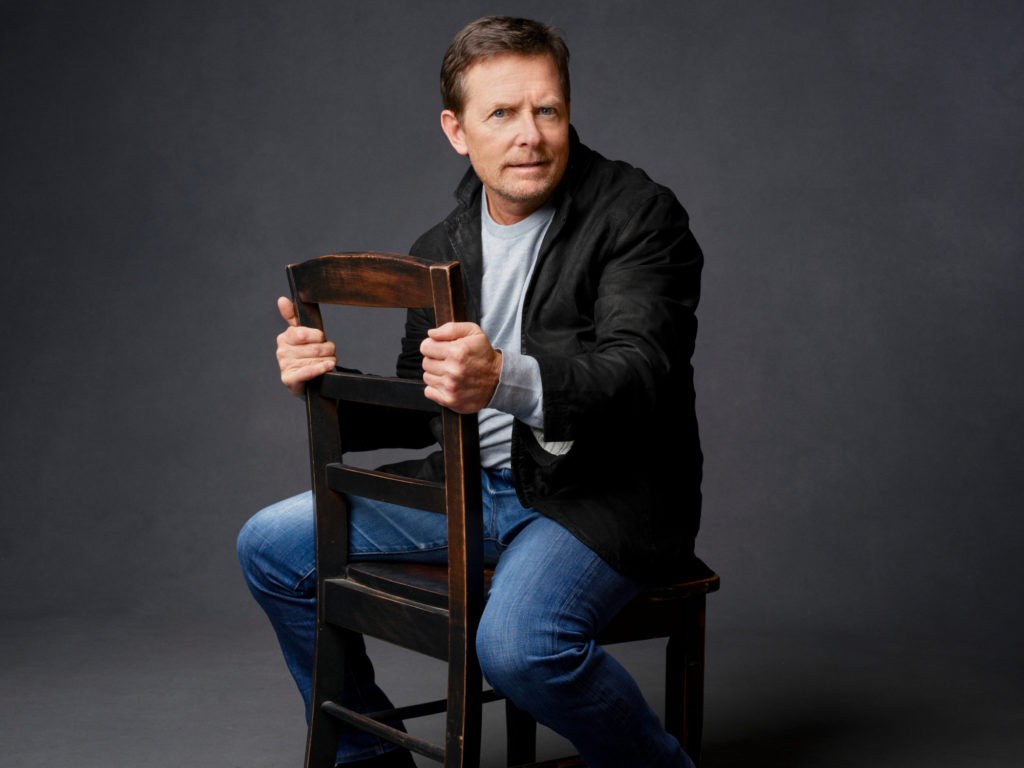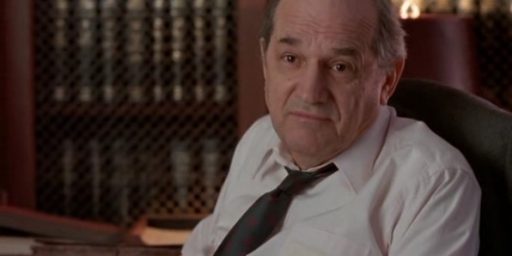Michael J. Fox Has Perspective
The actor reflects on nearly three decades with Parkinson's.

Michael J. Fox has a new book coming out next week and this has sparked a litany of interviews and features with the popular actor and Parkinson’s activist. The New York Times‘ treatment, “When It Comes to Living With Uncertainty, Michael J. Fox Is a Pro,” is especially powerful. The introduction:
Two years ago, Michael J. Fox had surgery to remove a benign tumor on his spinal cord. The actor and activist, who had been living with Parkinson’s disease for nearly three decades, had to learn to walk all over again.
Four months later, he fell in the kitchen of his Upper East Side home and fractured his arm so badly that it had to be stabilized with 19 pins and a plate. Mired in grueling, back-to-back recoveries, he started to wonder if he had oversold the idea of hope in his first three memoirs, “Lucky Man,” “Always Looking Up” and “A Funny Thing Happened on the Way to the Future.”
“I had this kind of crisis of conscience,” Fox said during a video interview last month from his Manhattan office, where pictures of Tracy Pollan, his wife of 31 years, and his dog, Gus, hung behind him. “I thought, what have I been telling people? I tell people it’s all going to be OK — and it might suck!”
His solution was to channel that honesty into a fourth memoir, “No Time Like the Future,” which Flatiron is publishing on Nov. 17. For an example of his new outlook, consider his perspective on traveling by wheelchair.
“It can be a frustrating and isolating experience, allowing someone else to determine the direction I’m going and the rate of speed I can travel. The pusher is in charge,” Fox writes. “From the point of view of the occupant of the chair, it’s a world of asses and elbows. No one can hear me. To compensate, I raise my voice and suddenly feel like Joan Crawford in ‘What Ever Happened to Baby Jane?,’ barking out orders.”
He continues: “Generally the person in control is a stranger, an airport or hotel employee. I’m sure that if we could look each other in the eye, we’d recognize our mutual humanity. But often in the wheelchair, I’m luggage. I’m not expected to say much. Just sit still.” Later, he adds, “No one listens to luggage.”
That he manages that level of optimism and self-reflection despite being dealt a rather bad hand is remarkable, indeed.
While he’s a few years older than me, he came to fame playing Alex P. Keaton on “Family Ties,” who graduated high school the same year I did. I was a big fan of that show and his early movie career, especially the “Back to the Future” movies, “The Secret of My Success,” and “Doc Hollywood.”
He was in the third season of his second star run in a television sitcom, “Spin City,” when he announced his Parkinson’s diagnosis. He’d actually been living with the disease for years, keeping the matter private, until the symptoms made it impossible to hide. He retired from the show the next year.
While he’s made a lot of cameo appearances since, he went from being a superstar to a sentimental favorite. And has managed to live enough of a life with a degenerative disease to fill four memoirs.
It speaks volumes to his fortitude and resiliency. And to what must be an incredibly strong marriage, indeed.






I read, many years ago, that individuals generally have a happiness setpoint, and no matter what happens to them, good or bad, if you find them a few months later they’re back to what their setpoint was before the event.
@Teve:
That could be another way of saying we start taking things going well for granted.
And here I thought he was faking it. s//
But often in the wheelchair, I’m luggage. I’m not expected to say much. Just sit still.” Later, he adds, “No one listens to luggage.”
Third reload’s a charm!
test… trying to call up edit function in previous post…
Ha! Fat chance of that!
I think the best cameo performance he did was as an exceptional surgeon with OCD on Scrubs. It showed his talent very well.
Indeed, James. I’ve tried to handle my journey for the last nine years with a semblance of his optimism and grace. Looking forward to his new book.
@Mister Bluster: Joe sounds like a hell of a dude.
@Teve:
Last year I signed up for a medical study. This one was about “emotional wellness”. There was a series of tests on the computer involving memory and reactions to images, a long session in an MRI* where they show you images and check for emotional reactions, an oral test in front of researchers**, and a final session Q&A with a psychology grad student.
The one big comment I had in the exit interview was that the tests didn’t allow for “zen”. I’m betting that I was an outlier because very little gave me a significant emotional response. My “default happiness state” is “zen”.
* I now have visual proof that I have a brain.
** These were actors (I figured it out half way through) who are deliberately non-responsive and stone-faced. Even knowing they were actors, it was somewhat stressful (it was a stress test). I can’t imagine what it would be like for someone who’s not good at public speaking.
@OzarkHillbilly:..Joe sounds like a hell of a dude.
@Mu Yixiao: Sorry, I couldn’t help thinking of this.
@Mister Bluster: who are you quoting?